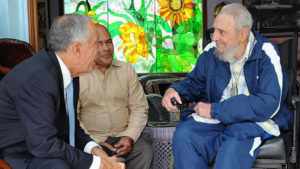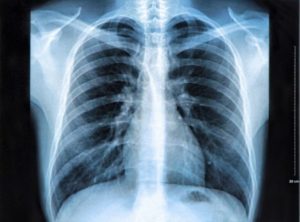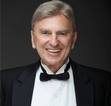Gerard Dion's Blog, page 11
November 21, 2016
Russian military considers return to Cuba, Vietnam
Published October 07, 2016
MOSCOW – The Russian military says it’s considering the possibility of regaining its Soviet-era bases on Cuba and in Vietnam, a statement that comes amid growing U.S.-Russia tensions over Syria.
Deputy Defense Minister Nikolai Pankov told lawmakers Friday that the ministry is considering the possibility of establishing footholds far away from Russia’s borders.
In response to a lawmaker’s question if the military could return to Cuba and Vietnam, Pankov said the military is “reviewing” a decision to withdraw from them, but didn’t offer any specifics.
In 2001, Russian President Vladimir Putin ordered the military to pull back from Cuba and Vietnam as he sought to bolster ties with the United States. The U.S.-Russian relations now have plunged to the lowest point since the Cold War times amid strain over Syria and Ukraine.
Cuba announces nationwide military exercises
Published November 09, 2016
Associated Press
HAVANA – Cuba has announced five days of nationwide military exercises to prepare troops to confront what the government calls “a range of enemy actions.”
The government did not link the exercises to Donald Trump’s U.S. presidential victory but the announcement of maneuvers and tactical exercises across the country came nearly simultaneously with confirmation of Trump’s surprise win on Wednesday.
It is the seventh time Cuba has held what it calls the Bastion Strategic Exercise, often in response to points of high tension with the United States.
The first exercise was launched in 1980 after the election of Ronald Reagan as U.S. president, according to an official history.
Cuban human rights activist urges U.S. to suspend trade and investment in Cuba until regime stops oppression
Press Clips for November 21, 2016
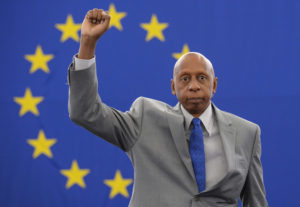
Guillermo Fariñas
Fox News Latino
Published November 18, 2016
One of Cuba’s most prominent human rights activists is in the U.S. to push for a halt or suspension of U.S.-Cuba trade and investment changes that he and other leaders say are enriching and empowering the Castro regime.
Cuban human rights activist urges U.S. to suspend trade and investment in Cuba until regime stops oppression | Fox News
In an exclusive interview with FoxNews.com, Guillermo Farinas said the Trump administration should halt or undo the Obama administration’s move to open up trade and business deals with Cuba until the Cuban government commits to making democratic reforms.
Farinas, who has been jailed by Cuban authorities for his activism for human rights, said President Obama’s easing of trade restrictions is enriching the regime of Raul Castro, and hardly benefiting the Cuban people.
Farinas has been tirelessly traveling to several states, including Florida, New York, New Jersey and Washington D.C., meeting with members of Congress, Cuban exile leaders, United Nations officials and representatives of leading human rights organizations to build support for a U.S.-Cuba policy that takes a tougher approach to the Cuban government.
“The people of Cuba see very little of the money that comes in from foreign investment and trade,” Farinas told FoxNews.com
“It makes the regime richer, and stronger, and bolder, because they have felt that because of President Obama’s decision to do business with it, it has credibility internationally,” he said. “It uses this international credibility to thumb its nose at the Cuban people, especially its critics and dissidents. And it’s gotten more brutal and more intolerant of dissent.”
Opponents of normalizing relations with Cuba have fought against growing momentum to lift the decades-old embargo, saying that the Cuban government has done nothing to move toward giving its citizens more freedom. Proponents counter that the embargo failed to bring about democratic reforms, and that it is time to try a different approach.
Farinas said he is not seeking a total rescinding of the restored diplomatic relations. The dissident, who’s got multiple health problems stemming from a recent month-long hunger strike he staged to push for human rights, said that he supports the Obama administration’s expansion of travel.
He said that the people of Cuba have been isolated by the regime for too long, and that the ability of the Cuban people to interact with U.S. relatives and visitors exposes them to new views and ideas.
Proponents of lifting the embargo say the Cuban government has taken some steps to change for the benefit of the Cuban people.
They say more Cuban people are now able to run their own business and invest in real estate.
“In Cuba, there is broad support for these changes,” said Madeleine Russak, communications director for Engage Cuba, an organization that favors normalizing ties with the island. “For 55 years the only people who have been hurt by the U.S. policy are the Cuban people.”
To fuel its campaign to get Republicans in Congress to support lifting the embargo, Engage Cuba has established councils in many GOP-leaning states where agriculture is a main industry.
“But with the free flow of information and travel, we’re in a much stronger position to improve the lives of Cubans. We are very optimistic that President-elect Trump, as a businessman, feels the same way.”
“The American people are the best ambassadors of democracy,” she said. “We’re optimistic that if we lift the full embargo, it will improve the lives of the Cuban people.”
Elizabeth Llorente is Senior Reporter for FoxNews.com, and can be reached at Elizabeth.Llorente@Foxnews.com. Follow her on https://twitter.com/Liz_Llorente
October 30, 2016
Portugal President Meets Fidel Castro in Cuba
Reestablishing connections with the island nation and its people
Portugal President Meets Fidel Castro in Cuba
Fidel Castro met with Portuguese President Marcelo Rebelo de Sousa in Havana.
Cuba’s former president Fidel Castro met with Portuguese President Marcelo Rebelo de Sousa in Havana on Wednesday.
Rebelo de Sousa and Castro talked about the United Nation’s General Assembly resolution that was overwhelming approved Wednesday by a vote of 191-0, with the United States abstaining for the first time in 25 years on the resolution condemning America’s economic embargo against Cuba.
Cuban Migrants Land In Separate Spots Along Florida Keys
Fidel Castro said during the meeting with the Portuguese president that Cuba is not willing to forget the human and economic damage caused by the blockade, and thanked de Sousa for his country’s vote.
They also talked about international issues and their friendly relations between both countries.
Source: Portugal President Meets Fidel Castro in Cuba | NBC 6 South Florida http://www.nbcmiami.com/news/local/Portugal-President-Meets-Fidel-Castro-in-Cuba-398930041.html#ixzz4Oc9klv7X
In a first, U.S. trial to test Cuban lung-cancer vaccine
THE WASHINGTON POST Laurie McGinley, Washington Post
The Food and Drug Administration has approved the first clinical trial to test a Cuban drug in the United States — a lung-cancer vaccine developed in Havana.
The decision on the early-stage trial was announced Wednesday by New York Gov. Andrew Cuomo (D) and officials at the Roswell Park Cancer Institute, based in Buffalo. The trial could start as soon as next month and will enroll 60 to 90 patients. It is likely to take three years to complete.
The trial will test the CIMAvax-EGF vaccine, combined with an immunotherapy drug called Opdivo, which has already been approved in the United States. The goal is to see if the pairing improves effectiveness.
[U.S. abstains on vote on Cuban embargo]
Cuomo touted the fact that the FDA’s action stemmed from the boost in a research partnership between Roswell and Cuba’s Center of Molecular Immunology (CIM) that occurred during a New York state trade mission last year. About two months later, the United States formally restored diplomatic relations with Cuba after a half-century breach.
Lung cancer is the leading cause of cancer deaths in the United States, with a five-year survival rate of only 17 percent. According to Grace Dy, the principal investigator in the Roswell Park trial, “We’re at an early stage in the development of this vaccine, which has never before been given to U.S. patients, so we have a lot to learn through this study. But the evidence so far is encouraging.”
[Research making progress on why young non-smokers get lung cancer]
The vaccine developed by CIM has been approved by a number of countries, including Paraguay and Peru. Even so, Len Lichtenfeld, deputy chief medical officer at the American Cancer Society, has taken a cautious stance on the vaccine.
In a post in March that society officials said was still relevant, he noted that “currently we do not have the information we need to have to know whether or not this vaccine could be useful in treating lung cancer or possibly be used to prevent cancer in patients at high risk of developing lung cancer. The studies that have been reported from Cuba are small and have limitations that prevent us from knowing how the treatment could be applied to the typical patient with lung cancer.”
He said that the history of vaccines in treating cancer has shown many more failures than success, making “the need to undertake well-designed clinical trials even more important.”
October 19, 2016
Obama eases restrictions on Cuba, lifts limits on rum and cigars
Politics | Fri Oct 14, 2016 | 7:38pm EDT
Obama eases restrictions on Cuba, lifts limits on rum and cigars
U.S. tourists welcome easing of Cuban cigar, rum restrictions (01:01)
Reuters
U.S. tourists welcome easing of Cuban cigar, rum restrictions
U.S. tourists welcome easing of Cuban cigar, rum restrictions
01:01
By Matt Spetalnick and Sarah Marsh | WASHINGTON/HAVANA
WASHINGTON/HAVANA Americans traveling to Cuba will be allowed to bring home more of the communist-ruled island’s coveted cigars and rum under new measures announced by the U.S. government on Friday to further ease trade, travel and financial restrictions that have been in place for decades.
Cuba welcomed the steps, part of President Barack Obama’s effort to make his historic opening to Cuba “irreversible” by the time he leaves office in January, but said they did not go far enough.
The latest in a series of new rules since the former Cold War foes began normalizing relations in 2014 will allow Cubans to buy certain U.S. consumer goods online, open the door for Cuban pharmaceutical companies to do business in the United States and let Cubans and Americans do joint medical research.
For American travelers, the biggest change is the removal of limits on the amount of rum and cigars they can pack in their luggage, strictly for personal use.
“You can now celebrate with Cuban rum and Cuban cigars,” U.S. National Security Adviser Susan Rice quipped as she laid out the policy changes in a speech to a Washington think tank.
U.S. law still bans general tourism to Cuba, but the administration has used previous regulatory packages to make it easier for Americans to visit the island under 12 officially authorized categories.
The latest measures are part of an executive order on Cuba through which Obama seeks to sidestep the Republican-controlled Congress, which has resisted his call to lift Washington’s economic embargo after more than 50 years.
Republican critics say Obama is making too many concessions to Cuba for too little in return, especially on human rights issues. “After two years of President Obama’s Cuba policy, the Castro regime has made out like bandits,” said U.S. Senator Marco Rubio, a Cuban-American lawmaker from Florida.
[image error]

Bottles of Cuban rum are displayed at a store in Havana, Cuba October 14, 2016.
Logos of Cuban cigars are seen on a wall at a hotel in Havana, Cuba October 14,
Bottles of Havana Club rum are displayed inside a shop in Havana, Cuba
Cohiba cigars are seen on display at the XVIII Habanos Festival in Havana, Cuba
Cuban cigars for sale are on display at a hotel in Havana
Cuban cigars for sale are displayed at a hotel in Havana, Cuba October 14, 2016. REUTERS/Enrique de la Osa
The steps allow Cuban pharmaceutical companies to apply for U.S. regulatory approval, let U.S. firms improve Cuban infrastructure for humanitarian purposes and authorize them to provide safety-related aircraft services in Cuba, where U.S. airlines are beginning regularly scheduled flights.
Also under the new rules, after docking in Cuba, some foreign ships carrying certain cargo will be permitted to travel directly to U.S. ports to load or unload freight. Until now, such vessels have been required to wait 180 days, a restriction that Cuban officials say hinders their import export trade.
Josefina Vidal, the Cuban Foreign Ministry’s chief of U.S. affairs, told a news conference in Havana the measures were “positive but of a very limited nature”.
MAKING THE OPENING “IRREVERSIBLE”
“Today, I approved a Presidential Policy Directive that takes another major step forward in our efforts to normalize relations with Cuba,” Obama said in a statement.
Less than a month before the Nov. 8 presidential election, Obama said his goal was to “make our opening to Cuba irreversible.”
The latest package, the administration’s sixth, is likely to be the “last significant tranche of changes” during Obama’s tenure, said a senior official, who asked not to be named.
Democratic presidential nominee Hillary Clinton backs the policy of rapprochement with Havana. Republican Donald Trump has vowed to roll back Obama’s executive actions.
Related Coverage
Vidal criticized Obama’s directive for making it clear the U.S. aimed to “promote change in Cuba’s economic, political and social system”, failing to respect its sovereignty.
In March, Obama made the first visit to Havana by a U.S. president in 88 years. His trip was made possible by his breakthrough agreement with Cuban President Raul Castro in December 2014 to cast aside decades of hostility that began soon after Cuba’s 1959 revolution.
Since the opening, Obama has repeatedly used his executive powers to relax trade and travel restrictions, while pushing Cuba to accelerate market-style reforms and boost political and economic freedom.
“The changes announced to Cuba regulations are, by definition, significant because they are new,” said John Kavulich, president of the U.S.-Cuba Trade and Economic Council. “Whether they will be relevant depends upon the government of Cuba’s willingness to permit United States companies and institutions to engage.”
“This new directive consolidates and builds upon the changes we’ve already made,” Obama said. He added, however, that “challenges remain – and very real differences between our governments persist on issues of democracy and human rights.”
At the same time, the U.S. embargo against Cuba has remained in place, a major irritant in relations. Only Congress can lift the embargo, and the Republican leadership is not expected to allow such a move anytime soon.
Here Comes a Wave of Change for Cuba

<a href="https://adclick.g.doubleclick.net/pcs... target="_blank"><img src="http://bs.serving-sys.com/BurstingPip...
Warming relations with the U.S. has an upbeat but wary island bracing for a rush of visitors from its Cold War adversary.
A curiosity, a portent, a looming symbol of the impending change: This May, for the first time in nearly four decades, an American cruise ship sailed into Havana Bay.
By Cynthia Gorney
Photographs by David Guttenfelder
This story appears in the November 2016 issue of National Geographic magazine.
The first Cuba sighting came Monday morning, just after sunrise. The island is almost 800 miles tip to tip, and for a while there was a horizon shimmer, then hilly outlines against pink sky, and finally: rooftops. A domed shape, maybe a cupola.

View Images
From the Malecón, Havana’s seawall, the closest tip of the United States (la Yuma, as it’s called in Cuban slang) is some 90 miles away. A common refrain, heard among Cubans studying the docked American ship: Pretty vessel. Wish I could travel like that—and go back and forth, between la Yuma and home.
The ship’s topmost deck was jammed with television crews; the rest of us mashed up against the railings on the next deck down. Somebody handed out little Cuban and American flags. Now we could make out the Malecón, the seawall and walkway that serves as a collective front porch for people seeking fresh air or respite from overcrowded households. On warm evenings Cubans always populate the Malecón, but this was something new—nine in the morning, and crowds seemed to have gathered, lofting flags of their own, waving. Cheering!
None of us had known what to expect; as we left Miami on Sunday afternoon, there’d been speculation that the first U.S. cruise ship to dock in Cuba in nearly four decades might fire up anti-Castro hostilities. A lone protest motorboat had chugged around with “Democracia” painted in defiant red along the hull, but that was all. And now in Havana the celebrations were so exuberant, once we made our way into the city’s passenger ship terminal, that the currency exchange booth clerk and I shouted at each other in Spanish through the glass.

The Tourist Boom
Last year the number of Americans visiting Cuba jumped 30 percent, to 454,000. As the United States approves more cruises and flights to the island, tourists could strain the island’s infrastructure and resources. The country’s capital, Havana, remains the main draw, but visitors are seeking out lesser known places, such as Cienfuegos and Santiago de Cuba.
Southwest To Begin Cuba Service In November

PHOTO by Southwest Airlines:
Southwest Airlines is making its 100th destination a pretty historic event.
The carrier today announced its flight schedule of new nonstop service between Florida and Cuba, making it the ninth country and 100th destination Southwest flies to with flights to Havana, Varadero and Santa Clara.
To kick it off, Southwest is offering a special fare of $59 one-way on nonstop flights to and from Cuba. There are restrictions so call your travel agent or Southwest Airlines, or go to southwest.com/cuba. But for the most part you need a required 14-day advance purchase today through Nov. 20, 2016, 11:59 p.m. in the time zone of the originating city, for travel Nov. 13, 2016, through April 24, 2017.
“Southwest Customers can book their tickets now to travel to Cuba with our low fares and no hidden fees, bags fly free, and the best employees in the industry,” Gary Kelly, Southwest Airlines’ Chairman, President & CEO, said in a statement.
READ MORE: American Plays Game Of Cuba One Upsmanship With United
Southwest service between Fort Lauderdale-Hollywood International Airport and Varadero, Cuba is scheduled to begin Sunday, Nov. 13, 2016, and Havana service is scheduled to start Monday, Dec. 12, 2016, from both Fort Lauderdale and Tampa International Airport, subject to requisite approvals of the Cuban government.
Southwest officials said service details for flights to Santa Clara, Cuba will be released in the coming weeks.
“We’re continuing to invest in the Sunshine State with relevant service in all eight of our Florida airports to connect Southwest customers to important things in their lives,” said Steve Goldberg, Southwest Airlines’ Vice President of Ground Operations, in announcing Cuba service details today at Fort Lauderdale-Hollywood International Airport.
Broward County’s state-of-the-art, five-gate international concourse is scheduled to open next summer at Fort Lauderdale-Hollywood International, and to celebrate Southwest’s new service the airline sent out dozens of employees to surprise local residents with $100 Southwest Airlines gift certificates to help spread awareness of the new flights.
Stark Contrast: Reality in Cuba vs The White House Narrative
Stark Contrast: Reality in Cuba vs The White House Narrative
In memory of Laura Pollán, Ladies in White founder, who died under suspicious circumstances five years ago today in Cuba. A victim of President Obama’s good intentions in Cuba.
President Obama’s National Security Adviser Susan Rice earlier today
The White House today made public a Presidential policy directive on United States-Cuba Normalization that is divorced from reality on numerous fronts. The directive purports to do a number of things as outlined below:(1) describes the U.S. vision for normalization with Cuba and how our policy aligns with U.S. national security interests; (2) assesses progress toward normalization; (3) describes the current and foreseen strategic landscape; (4) describes priority objectives for normalization; and (5) directs actions required to implement this PPD. It also serves as a useful guideline for a critical appraisal that was not present today at The Wilson Center when National Security Adviser Susan Rice made the case for the President’s Cuba policy without mentioning the worsening collapse in trade between the United States and Cuba over the past three years, the exodus of over a 100,000 Cuban refugees to the United States since December 2014, and the return of a Russian military presence to Cuba after a decades long absence. Not to mention rising violence and repression against Cuban dissidents during the Obama administration not seen in years. Instead the big news was about Cuban rum and cigars, produced from factories and lands stolen from their owners, could now be brought back by Americans who had visited Cuba putting an end to sanctions initiated by President John Kennedy over half a century ago. Ambassador Rice spent a lot of time talking about the October 1962 Cuban Missile Crisis and how they had transcended those times of distrust. She failed to mention that the same men who lobbied the Soviet Union to launch a nuclear first strike on the United States remain in power today, and asked the Russians to do it again in the 1980s. The Obama Administration vision of normalization is guided by the following concerns:
The security of the United States, its citizens, and U.S. allies and partners.
The disconnect between the aim and the reality is abysmal. Consider that the same day normalization was announced on December 17, 2014 President Obama commuted the sentence of an unrepentant murderous Castro spy. Gerardo Hernandez was serving a double life sentence for espionage against the United States, and his role in a murder conspiracy that cost the lives of the three U.S. citizens and a permanent resident. The freed Cuban spy and his network, had been given instructions to engage in acts of sabotage at a local airport and to send a mail bomb to assassinate a retired CIA agent at his home in South Florida. Furthermore in the months that followed the State Department removed Cuba from the list of state terror sponsors while there was still evidence of behavior by the regime to be kept on it and watered down the report on human trafficking in Cuba. Despite this history the PPD calls for the Office of the Director of National Intelligence (DNI) to “support broader United States Government efforts to normalize relations with Cuba, with Intelligence Community elements working to find opportunities for engagement on areas of common interest through which we could exchange information on mutual threats with Cuban counterparts.” A former NSA official has written that “Obama just opened the door for Castro’s spies.”
Spy convicted of murder conspiracy freed by Obama honored by Raul Castro
A strong, innovative, and growing U.S. economy in an open international economic system that promotes opportunity and prosperity.
Under the Obama administration trade between Cuba and the United States has collapsed to levels not seen since 2002. Other countries with “normal” relations have fared worse. Argentina is seeking repayment of 1.3 billion dollars it is owed by the Cuba. Meanwhile the Castro regime calls for 75% of its debt with Argentina to be written off. In 2013 Mexico waived 70% of the 487 million dollar debt it was owed by the Cuba. Russia, Venezuela, China, Japan, Spain, France, Romania, Brazil, and Italy are owed billions of dollars. Russia forgave $29 billion dollars of debt that the Castro regime owed the Russians. Canadians have had to pursue Cuban maritime debts by seizing Cuban vessels and negotiating payment through Canadian courts. Iran agreed in September 2016 to restructure a 55 million dollar debt owed to it by Cuba. This is a deadbeat regime not a trading partner.
Respect for universal values at home and around the world.
Again the goal expressed is contradicted by the policy implemented on at least three high profile occasions. First, Carnival Cruise Line signed an agreement with the Castro regime on March 21, 2016 to sail to Cuba from the United States. In order to conduct their core mission Carnival had to agree to enforce General Castro’s policy that bans all Cubans from traveling into the island by water. It did not matter if Cubans born on the island were now citizens of another country. Obama’s Treasury Department on July 7, 2015 signed off on the Carnival Cruise Line – Castro alliance ignoring that an entire class of Americans would be discriminated against based on their national origin. Mass protests, boycotts and lawsuits led the Castro regime to blink when it became apparent that popular outrage would lead the cruise ship company to cancel its cruises. Second, the U.S. embassy in Cuba floated a trial balloon that announced that the United States government accepted that U.S. citizens of Cuban descent born in the United States are not recognized by the Castro regime as Americans but as Cuban nationals subject to the dictatorship’s laws and regulations. Even though one was born in the United States and has never applied for dual nationality in Cuba they are treated as a Cuban born by the Castro regime in terms of responsibilities but not rights and the Obama State Department went along with it in order to have “normal relations.” This also means that these U.S. citizens would be denied consular access in Cuba. The State Department had to back track in May of 2016 when this trial balloon sunk amidst negative press coverage and popular outrage.
Third, American Airlines is pulling Cuban-American pilots and flight attendants off flights to Cuba in order to placate demands by the Castro regime. Fabiola Santiago, of The Miami Herald, obtained an American Airlines memo announcing the policy as follows: “Please remember that those who are Cuban born should be removed with pay from Cuba flights until we can verify what requirements the Cuban government has for these crew members.”
A rules-based international order that promotes peace, security, and opportunity.
The Obama administration engaged in outreach to the Castro regime beginning in 2009, intensifying through 2013 and finally announced the new policy on December 17, 2014. While these friendly, and secret communications were taking place, the Castro dictatorship was caught smuggling tons of weapons into North Korea in 2013 in violation of international UN sanctions, got its hands on a U.S. Hellfire missile in 2014 and held on to it for over a year despite repeated requests by the Obama administration to have it returned, and has led the way to defend brutal outlaw regimes the world over. Legitimizing the dictatorship in Cuba and ending economic sanctions that were part of a containment policy only serves to undermine the above desired objective. Freedom will return to Cuba some day, but the Obama administration’s engagement with the dictatorship that begin in 2009 has and will extend the life of the Castro regime as Bill Clinton’s engagement with Fidel Castro in the 1990s gave another twenty years to the totalitarians in Cuba. Sadly over the past seven years opposition leaders who could have led a democratic transition, such as Laura Pollán and Oswaldo Payá, were killed in what appears to have been extrajudicial killings carried out by Castro’s intelligence agents.
Notes from the Cuban Exile Quarter
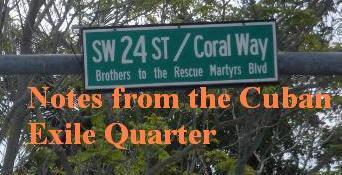
“The first victory we can claim is that our hearts are free of hatred. Hence we say to those who persecute us and who try to dominate us: ‘You are my brother. I do not hate you, but you are not going to dominate me by fear. I do not wish to impose my truth, nor do I wish you to impose yours on me. We are going to seek the truth together’. THIS IS THE LIBERATION WHICH WE ARE PROCLAIMING.”
Oswaldo José Payá Sardiñas (2002)

